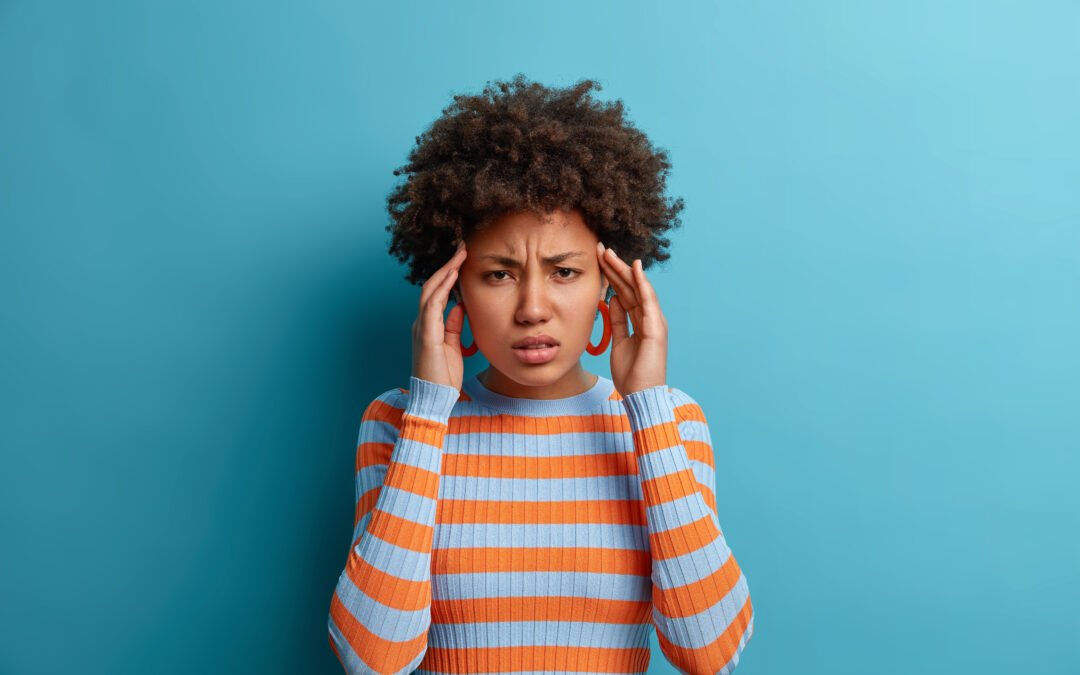What is the Dizzy Migraine aka the Vestibular Migraine?
Migraines are extremely debilitating and often strike people (mostly women) between ages 20-40, with a bit older age range for men. The vestibular migraine or dizzy migraine is quickly becoming one of the most prevalent vestibular disorders. Almost half of all migraine patients have some sort of vestibular symptoms including imbalance and/or dizziness at some point. A vestibular migraine is a type of migraine that can cause dizziness, vertigo, and other balance-related symptoms. The vestibular system is responsible for helping the body maintain balance and spatial orientation. When the vestibular system is affected by a migraine, it can cause symptoms such as vertigo, dizziness, lightheadedness, and imbalance.
It is estimated about 50% of vestibular migraines go undiagnosed or misdiagnosed!
How do I know if I have a migraine or just a headache?
The main differences between a migraine and a headache include the following:
- Migraine head pain usually starts on one side of your head.
- Migraine is severe and pulsating in nature.
- Migraines interfere with your daily activities and you usually need to go in a dark and quiet room to rest.
- Light and sound sensitivity is usually present.
- Nausea and/or vomiting can also occur.
The patients I see with vestibular migraine will typically complain of the following all or most of the time:
- Feel light-headed, have brain fog, or report just feeling dumb!
- Many people say they feel low grade nausea most of the time
- Many people say they feel like they are on a boat or like they are moving
- Certain movements, like rolling in bed or laying down quickly, cause a lot of dizziness
- They do not like moving their head quickly and repetitively
- They get motion sick more easily
- They do not like visually rich environments (watching an escalator move or being in a busy shopping mall)
Some of the time they will also complain of:
- “Episodes” that last anywhere from minutes to hours where all or some of their everyday symptoms are worse
- Vertigo (false sense of spinning) during these “episodes”
The symptoms of vestibular migraines can last anywhere from a few minutes to several hours or even days. Some people may experience these symptoms before or during a migraine headache, while others may experience them without any headache at all.
Note: You DO NOT have to be currently experiencing migraines to be diagnosed with vestibular migraine. You simply need to have a history of getting migraines at some point in your life.
What Causes the Dizzy Migraine aka Vestibular Migraine?
The exact cause of vestibular migraines is unknown, but they are thought to be related to changes in the brain and the way it processes sensory information. Certain triggers can also increase the likelihood of experiencing a vestibular migraine, such as:
- Stress
- Hormonal changes, such as those that occur during menstruation
- Lack of sleep or irregular sleep patterns
- Certain foods, such as aged cheese or foods containing nitrates
- Bright lights or loud noises
- Changes in weather or altitude
How is the Dizzy Migraine, Vestibular Migraine, treated?
It is essential to identify and avoid potential triggers as much as possible to prevent the occurrence of vestibular migraines. In many cases, vestibular rehabilitation therapy may be very beneficial for aiding in treatment.
Vestibular rehabilitation is a type of physical therapy that is effective in treating migraines with dizziness or vertigo symptoms. This specialized form of therapy focuses on the vestibular system, which is responsible for our sense of balance and spatial orientation. During vestibular rehabilitation, a physiotherapist will work with the patient to identify any vestibular deficits and create a tailored exercise program to improve balance and reduce dizziness. This can include exercises like gaze stabilization, balance training, and habituation exercises. Studies have shown that vestibular rehabilitation can be effective in reducing the frequency and severity of migraines with dizziness or vertigo symptoms, and can improve overall quality of life for those suffering from these symptoms.
Vestibular migraine can be difficult to recognize and that is why it is so important to get a thorough examination by a therapist. Our team at Altea Physiotherapy + Wellness specialize in vestibular rehabilitation – treatment and recovery are possible and we are here to guide you through this process. You can give us a call, book online, or email us if you think you may be suffering from vestibular migraine.

